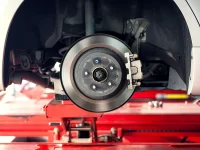Understanding the Legal Requirements for Disposing of a Car in Florida

If you’re planning to dispose of a car in Florida, it’s essential to understand the legal requirements involved in the process. Failing to comply with these regulations can result in penalties, fines, or legal implications down the road. This is why we’ve created this guide to help you navigate through the necessary steps and ensure a smooth and legal process when disposing of your car. So, let’s dive into the legal requirements, disposal options, and environmental impacts of disposing of a car in Florida.
Determine the Value of Your Car
Before you dispose of your car in Florida, it is crucial to determine its worth. Various methods can help you assess the value of your car. One of them is consulting online valuation tools that provide estimates based on make, model, year, mileage, and condition. Another option is to get a professional appraisal from a mechanic or a dealership.
Factors such as the car’s mileage, overall condition, and market demand also play a significant role. You might want to consider having the car inspected to ensure you get an accurate valuation. Presenting documentation of scheduled maintenance, repairs, and upgrades can also help you get a higher price for your car.
Knowing your car’s true worth can help you decide the best way to dispose of it, whether through selling, donating, or recycling.
Explore Selling Options
If you’ve decided to sell your car, there are several selling options available. Each method has its advantages and disadvantages, so it’s crucial to evaluate each option carefully to find the one that works best for you.
If you prefer a hassle-free process, trading in your car at a dealership could be a suitable choice. You can negotiate a deal for a new car while quickly disposing of your old one. However, keep in mind that the value you get might be lower than if you sold your car privately.
Another selling option is to sell your car privately. You can place an ad in the local newspaper or utilize online platforms like Craigslist or Facebook Marketplace. This option allows you to set your price and negotiate with potential buyers directly. It’s essential to conduct thorough research on market prices and create a compelling ad to attract interested buyers.
Finally, you can also utilize online car-selling platforms like Carvana or Vroom. These platforms provide a hassle-free service that allows you to sell your car quickly. However, keep in mind that the value you get might be lower than if you sold your car through other methods.
Whatever option you choose, ensure you have all necessary documentation, understand the process, and be prepared to negotiate to get the best price possible for your car.
Donating Your Car
If you’re looking to give back to your community, donating your car to a charitable organization is a wonderful way to do so. Not only will your vehicle go towards a good cause, but you may also be eligible for tax benefits with your donation.
When looking for charitable organizations to donate your car to in Florida, it’s essential to research reputable options. Charities such as Goodwill, the American Cancer Society, and the National Kidney Foundation are just a few examples of organizations that accept car donations. Be sure to review each charity’s programs and mission to ensure that your donation aligns with your values.
Before donating your car, make sure to understand the tax benefits you may be eligible for. Charitable donations of vehicles can provide tax deductions in certain circumstances. Consult with a tax professional or the Internal Revenue Service (IRS) for additional information on claiming your donation on your tax return.
Once you have selected a charity to donate your car to, make sure to follow the necessary documentation procedures. You will typically need to sign over the vehicle’s title and provide any necessary paperwork to the charity.
Overall, donating your car is a great way to support a charitable organization and potentially receive tax benefits. Just make sure to do your research and follow the steps necessary to make your donation a success.
Junking Your Car
If your car has reached the end of its useful life and is no longer in working condition, junking it is a viable option. Salvage yards are facilities that specialize in dismantling and recycling cars and their parts. When junking a car, it’s essential to locate a reputable salvage yard to ensure that the process is environmentally friendly and legal. In Florida, there are specific regulations for junking a car, and failure to abide by them could result in fines and legal penalties.
When searching for a salvage yard, consider the customer reviews, certifications, and the facility’s compliance with environmental regulations. Reputable salvage yards will provide documentation of the disposal process, including the removal of hazardous materials such as batteries and fluids.
Recycling is an essential part of the junking process and involves dismantling a car and selling the components for raw materials. Recycling reduces the environmental impact and conserves natural resources by decreasing the demand for new parts. When junking your car, you can feel good about contributing to a sustainable future while responsibly disposing of your vehicle.
Transferring Ownership
When disposing of your car, transferring ownership is a critical step that requires compliance with legal requirements. In Florida, this process involves obtaining the vehicle’s title and completing the necessary paperwork, such as a bill of sale or transfer of ownership form.
To transfer ownership, you will need to visit the DMV (Department of Motor Vehicles) and provide the necessary documentation. Depending on the situation, you may also need to pay fees or taxes. It is essential to ensure all the paperwork is filled out correctly to avoid any delays or legal complications.
Once the DMV processes the title transfer, they will issue a new title in the new owner’s name. This process ensures that the new owner is legally responsible for the car and its associated costs, such as insurance and registration.
By following the proper procedures to transfer ownership, you can ensure a smooth transition and avoid any legal issues. Remember to comply with local regulations and seek help from professionals, if needed.
Consider Environmental Impact
Disposing of your car may seem like a simple process, but it’s essential to consider the environmental impact. Improper car disposal can lead to soil, air, and water pollution, endangering public health and wildlife.
To mitigate the adverse effects of car disposal, you should explore eco-friendly options. Recycling is an excellent option that can help reduce waste and conserve resources. Responsible dismantling ensures the safe removal of hazardous materials that can harm the environment and human health.
It’s crucial to understand the impact of your actions and make informed decisions to protect the environment. By choosing eco-friendly options for car disposal, you can minimize your carbon footprint and support sustainable practices.
Researching Local Regulations
When disposing of your car in Florida, it’s important to understand the local regulations that may apply to your specific area. Different localities may have additional requirements or restrictions for car disposal, and failing to comply with these regulations could result in legal consequences.
To ensure compliance, you should research the local regulations in your area regarding car disposal. This can typically be done by contacting your local Department of Motor Vehicles (DMV) or environmental agency. They can provide you with information on any specific regulations that may apply to your situation.
Some localities may have restrictions on where you can dispose of your car, or require certain documentation before allowing you to do so. By researching and understanding these regulations, you can avoid any potential issues and ensure a smooth process for disposing of your car.
Furthermore, complying with local regulations is not only necessary for avoiding legal consequences but also for protecting the environment. Many regulations exist to ensure that cars are disposed of in a way that does not harm the environment or pose a risk to public health.
So, whether you are selling, donating, or junking your car, be sure to research and comply with the local regulations in your area. By doing so, you can ensure a responsible and environmentally friendly disposal of your car while avoiding any legal issues that may arise.
Properly Removing Personal Information
Disposing of a car involves more than just removing it from your driveway; it also includes properly removing any personal information stored in the vehicle.
To protect your data privacy, it is crucial to follow these simple steps:
- Delete all personal profiles from infotainment or navigation systems and ensure that any paired devices or accounts are unlinked.
- Wipe all personal data from the car’s internal memory, such as stored addresses, contacts, or call logs.
- Remove any license plates, parking permits, or toll tags that may contain identifying details.
- Remove any physical documents from your glovebox or trunk, such as insurance papers, registration, or service records.
By taking these precautions, you can ensure that your personal data remains secure and protected while disposing of your car.
Conclusion
Disposing of a car in Florida can be a daunting task, but understanding the legal requirements and exploring different options can make the process much smoother. By determining the value of your car, you can make an informed decision on whether to sell, donate, or junk it. Researching local regulations and complying with the necessary paperwork and DMV procedures can ensure a smooth transition of ownership.
It’s also essential to be mindful of the environmental impact of car disposal. Eco-friendly options such as recycling, responsible dismantling, and disposing of hazardous materials can help protect the environment and reduce waste.
Before disposing of your car, make sure to remove any personal information stored in the vehicle to protect your data and ensure data privacy.
By following these guidelines, you can dispose of your car (click here to know what makes a car a clunker junker) in a responsible and hassle-free manner, contributing to a cleaner and safer environment while complying with local laws and regulations.







